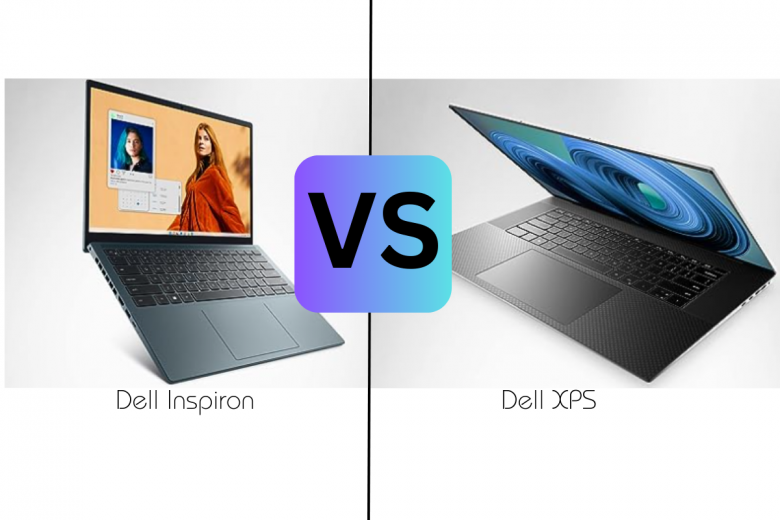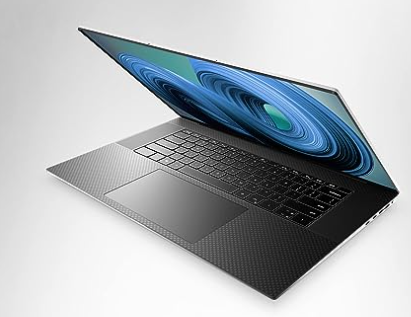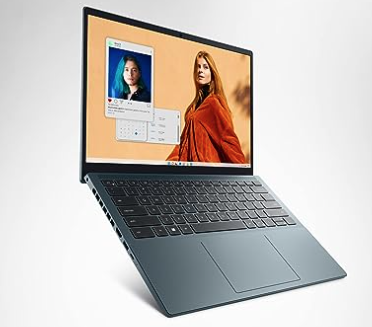Trying to find the right business laptop to work on can be a challenge. Especially, when confronted with a lot of choices within a single brand. Dell, a stalwart in the computer industry, offers several options. However, there are two series that frequently enter the conversation: the Inspiron and the XPS. One of them is best for handling general work tasks and the other is a workhorse that can handle almost anything the business day can throw at it.
Both lines have carved unique niches. The Inspiron targets a broader, value-conscious demographic while the XPS represents the pinnacle of Dell’s commitment to performance and premium craftsmanship. Yet, when placed side by side, which emerges as the victor for business usage?
In this article, we’ll compare the two laptops side-by-side to help you make a decision as to which is the best laptop for you.
The Difference Between the Dell Inspiron and the Dell XPS Laptops for Business
The Dell Inspiron and Dell XPS are both lines of laptops and desktops offered by Dell. However, they cater to different markets and have distinct specifications and features. Both the Inspiron and the XPS have multiple models and configurations. This can make it a bit challenging to provide a side-by-side comparison without specifying particular models.
For the sake of a general comparison, here’s a broad overview of the differences between the Dell Inspiron and Dell XPS laptop lines.
| Feature | Dell Inspiron | Dell XPS |
|---|---|---|
| Target Audience | Mainstream consumers, students | Professionals, power users, and those seeking premium devices |
| Build Quality | Plastic and metal combinations | Premium materials like aluminum, carbon fiber, and Gorilla Glass |
| Performance | Mid-range processors suitable for daily tasks | High-end processors for intensive tasks and multitasking |
| Display | Available in HD and FHD, some models have touchscreens | FHD, QHD, and UHD options, often with InfinityEdge bezels and touchscreens |
| Graphics | Integrated graphics with some discrete options | Integrated and high-end discrete graphics options, suitable for gaming and content creation |
| Portability | Varies, but generally thicker and heavier | Slim, lightweight designs emphasizing portability |
| Battery Life | Average, suitable for daily tasks | Long-lasting, often with more efficient processors |
| Price | Generally more affordable | Premium pricing reflecting the high-end specs and build |
Design Distinctions
In the vast spectrum of Dell’s computers, the Inspiron and XPS series have carved distinct niches. The Inspiron series is designed with versatility in mind. It tends to lean towards a slightly more robust form factor. It’s a no-frills, durable machine meant to cater to a broad range of users.
In contrast, the XPS is a reflection of Dell’s high-end craftsmanship. We’ve mentioned in other articles that it is one of the best business laptops around. With a sleek profile, these laptops are constructed using luxury materials like carbon fiber and machined aluminum, making them a favorite among professionals who value aesthetics and durability in equal measure.
Performance Parameters
Dell’s Inspiron and XPS series, while both exemplary in their right, display marked differences when we scrutinize their performance capabilities. These distinctions become even more noticeable for businesses.
Let’s start with the Inspiron series. Beneath their sturdy exterior lies a range of processors, from Intel’s i3 to i7, or, in some models, AMD’s Ryzen lineup. This means businesses have the flexibility to choose a model that precisely matches their operational intensity. For routine office tasks—like running Microsoft Office applications, web browsing, or managing databases—the Inspiron’s mid-tier models with an i5 processor, coupled with 8GB RAM, typically suffice. But, a better option might be something like the Inspiron 16 Plus 7620. It runs on the Core i7 and comes with 16GB of RAM. The integrated graphics on most Inspiron models, such as the Intel UHD, handle standard visual tasks smoothly. However, they might falter if pushed to run heavy-duty graphic applications or simultaneous multi-tasking of resource-intensive programs.
Conversely, the XPS series is Dell’s testament to high-performance computing with a sleek design. At the heart of the XPS laptops, you’ll often find Intel’s latest i7 or i9 processors or AMD’s high-end Ryzen chips. These are paired with a minimum of 16GB RAM in most models. But, this can often be upgraded further. For graphics, the XPS doesn’t just rely on integrated solutions. Instead, many models come equipped with dedicated graphics cards, like NVIDIA’s GeForce series, providing a substantial boost to visual performance.
This makes the XPS range adept at handling resource-greedy applications. That means high-end data analytics tools, graphic design software like Adobe’s Creative Suite, or even 3D modeling programs. Also, with faster SSDs (Solid State Drives), the XPS series ensures rapid boot times and lightning-fast data access, enhancing the overall user experience.
Visual Virtues
The visual experience offered by these laptops also diverges significantly. Inspiron laptops, sticking to their theme of affordability, come with competent Full HD displays. They’re adequate for general tasks but might not satiate professionals demanding higher resolution and color accuracy.
The XPS models are a delight for the visually inclined. Their screens, offering up to 4K resolutions, combined with superior color calibration, are ideal for tasks like graphic design and video editing.
Battery and Endurance
For business purposes, a laptop’s longevity isn’t just about convenience. Oftentimes, it is about uninterrupted productivity. That is especially true during long meetings, travel, or power outages. Dell’s Inspiron and XPS series, though both hailed for their reliable performance, differ notably in their battery capabilities and endurance.
The Dell Inspiron series is designed for general users and affordability in mind. On paper, Dell promises decent longevity at around 16 hours. However, real-world scenarios paint a slightly varied picture. When equipped with standard configurations, such as an i5 processor, 8GB RAM, and a Full HD display, most Inspiron models claim to deliver anywhere from 6 to 8 hours of continuous usage. Most users can expect around 10 hours of battery life. This duration can indeed suffice a regular workday for many, especially if you factor in breaks.
Yet, the longevity shrinks when subject to more intensive tasks. Video streaming or using multiple applications simultaneously, for example.
With the XPS, you will get slightly better battery life. Incorporating larger battery units and optimizing power consumption through hardware-software synchronization, many XPS models boast runtimes exceeding 10 to 12 hours on moderate usage.
Features like low-power draw displays, efficient SSDs, and advanced power management settings in the latest Intel and AMD processors significantly contribute to this enhanced battery life. For professionals, this means fewer interruptions, minimal dependency on carrying chargers, and the confidence to power through demanding tasks without the anxiety of battery drain.
Budgetary Balances
Cost considerations are integral when choosing a business laptop. The Inspiron series offers a commendable balance of features and affordability. It’s an ideal pick for business owners and professionals who do not need a more powerful device and for those who want a budget business laptop. On the lower end of the spectrum, you can find the Inspiron for around $535. But the price can go as high as $1,400.
The XPS range, being premium, is priced higher. Most start at $1,200 and can go as high as $3,700. But for people that prioritize top-tier features and unparalleled performance, the investment in an XPS is justified by its superior returns in productivity and user experience.
Conclusion
The Inspiron is a decent laptop for business and personal use. It has its limitations. The clear winner for people who need a serious laptop for business is the XPS.
Also read:
The Difference Between the Dell Precision and Latitude Laptops
Best Dell Business Laptops with Numeric Pads
Here are the Best Dell Business Laptops Available













Pingback: The Difference Between the Dell Inspiron and XPS Laptops – Entrepreneur – Start, Run and Grow Your Business
Pingback: The Difference Between the Dell Inspiron and XPS Laptops – Joseph Odierno Buffalo
Pingback: The Difference Between the Dell Inspiron and XPS Laptops – Austin Rotter
Pingback: The Difference Between the Dell Inspiron and XPS Laptops – Andrea Zanon